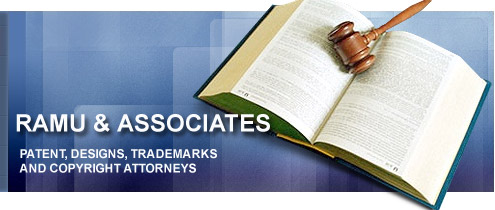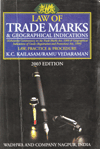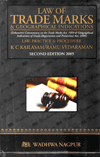Patents, Designs, Trademarks, Copyright attorneys,Patent Attorney in India,Trade Mark Attorney in India,Copyright Attorney in India,Design Attorney in India,Geographical Indication Attorney in India,Intellectual Property Attorney in India,IP Attorney in India,Services Marks Attorney in India, ,attorney,attorneys,clients,file,firm,institute,institute trade,institute trade mark,intellectual,intellectual property,
intellectual property law,international,itma,kingdom,law,law firm,lawyer,lawyers,legal,madrid,mark,mark attorneys,
marks,matters,navigation,online,patent,patent trademark,patent trademark office,policy,practice,property,property law,
protection,registered,registration,regulations,search,secret,site,states,states patent trademark office,trade,trade mark,
trade mark attorneys,trade marks,trade secret,trademark,trademark attorney,trademark attorneys,trademark law,trademark lawyer,
trademark office,trademarks,
Ramu and Associates

Trademark
News & Events
The Site is Best viewed with 1024 x 762 Resolution.
2006 - 07 ã Ramu & Associates .All Rights Reserved.
Mr Ramu Vedaraman Co-Authors on "Law of Trademarks & Geograhical Indications". 2003 Edition


Mr Ramu Vedaraman Co-Authors on "Law of Trademarks & Geograhical Indications". Revised 2005 Edition.
Salient Features of the Trade Mark Act, 1999
By V. Ramu & V. Anuradha
The Trade Mark bill 1999 was passed and the bill received the accent of the President of India on the 30th Dec 1999 and became an Act. The Draft Trademark Rules were notified on 18th May, 2001 and approved Rules were notified on 26th February, 2002. The new Act has been brought into force on 15th September 2003 after considerable lapse of time.
The Salient features of the Trade Marks Act, 1999, are as follows:
Registration of Trade Mark for Services [Sec. 2(2)(z)]
The new law provides for registration of trade marks for services, in addition to goods. It was obligatory on India to provide for protection of trade marks in respect of services under the Paris convention [Article 1(2), read with Art. 6] and for registration under the TRIPS Agreement [Art. 15(4)], India is a member. Service marks registration has been introduced in the new Act.
Enlargement of definition of Trade Marks [Sec. 2(2)(zb)]
The definition of trade marks has been enlarged, so as to include shape of goods, their packaging and combination of colours. It is only illustrative and it follows that even something not falling into one of these categories may be regarded as a mark for the purposes of the Act.
Registration of Trade Marks simplified [Sec. 9(1)(a)]
For registrability, the mark will have to be capable of distinguishing the goods or services of the applicant from those of others. Thus the test of registrability of trade marks under the new Act will generally be similar to what was necessary to secure a registration in Part B of the register under the old Act. Any mark which is demonstrated to be distinctive in fact by use will qualify for registration under the law, since it does not seem to be necessary as under the old law that the mark must be "adapted to distinguish", a concept omitted in the present law.
Enhanced protection for well known trade marks [Sec. 2(1)(zg), read with section 9(1) and section 11]
The new act incorporates definition of "well-known trade marks" [Sec. 2(1)(zg)]. Further the law seeks to prevent registration of trade marks, which are imitations of well-known marks, by enlarging the grounds for refusal of registration under Sections 9 and 11 of the Act. The proprietor of well-known mark will be entitled to prevent use of identical or similar trade mark in connection with goods or services, though not similar to those for which the mark is registered, where such use is without due cause, would take unfair advantage of or be detrimental to the distinctive character or reputation of the well-known trade mark.
Defensive Registration system in 1958 Act omitted [Sec. 159(6)]
Defensive Registration is abolished in the new Act, since it was limited to only "invented words". Sec. 159 enacts that a defensive registration is effected under section 47 of the TM Act 1958, will cease to have effect on the date immediately after the expiry of five years of the commencement of the new Act or after the expiry of the period for which it was registered or renewed, whichever is earlier.
Part A and Part B registration system abolished [Sec. 6(7)]
In 1958 Act, the law provided registration of trade marks in Part A marks which were distinctive i.e. "adapted to distinguish" the goods and in Part B marks which are "capable of distinguishing" the goods. The new Act has abolished the system of maintaining two-part registration of trade marks in Part A and Part B with different legal rights, and to provide only a single register with simplified procedure for registration of marks and with equal rights. The provision for presumption of conclusive validity of a trade mark after 7 years as contained in former section 32 has been omitted, as being redundant.
Period of renewal modified [Sec. 25]
The new Act 1999 has increased the period of renewal of Trade Mark from 7 years to 10 years. Therefore every trade mark registered will be valid for 10 years and has to be renewed every 10 years. The old mark where certificates have been issued will be valid for 7 years and then the calculation has to be for 10 years and respective fees have to be paid to the Registrar of Trade Marks.
Filing of Multi-class applications permitted [Sec. 18(2)]
The new Act enables an applicant to file a single application for registration of the same mark in respect of goods or services falling in more than one class. It means that the law facilitates registration of the same mark in several classes by means of single application. But fees payable will be in respect of each such class of goods or services.
Law concerning registration of registered users simplified [Sec. 49]
The definition of 'permitted user' has been substantially changed to cover use of the mark both by a registered user and unregistered common law licensee, who is in any case entitled to use the mark by virtue of the agreement with the registered proprietor. The authority to register such licensing arrangement is transferred from 'Central Government' to the legitimate authority, viz. the Registrar of Trade Marks. Another change is the deletion of the reference to 'trafficking in trade marks' which existed in the old law. The Trademark Act 199 has incorporated assignment of Trademark with or without the transfer of the goodwill of the business or part of the business to which the trade mark concerned pertains, which has now been given statutory shape in Sections 38 and 39 of the new Act.
New provision for registration of Collective marks [Chapter VIII - Sec. 61-68]
The new Act has introduced a set of provisions for registration of 'collective mark' which belongs to a group or association of persons, whose use is reserved for members of the group or association of persons. Collective marks would serve to distinguish characteristic features of the products or services offered by those enterprises.
Appeals from Registrar to lie to Appellate Board, instead of High Court [Sec. 83-100]
Appeals from orders or decisions of Registrar which had to be filed before the High Court having jurisdiction as defined under the old Act, has been transferred from the High Courts to the Intellectual Property Appellate Board, constituted by the new Trade Marks Act, 1999. The Act explicitly bars any court or authority from exercising jurisdiction, powers or authority in relation to appeals [vide section 93]. In Section 100, all cases of appeals and rectification proceedings pending before any High Court will be transferred to the Appellate Board from such date as may be notified in the Official Gazette.
Scope of infringement of Trade marks widened [Sec. 29]
The scope of the law governing infringement of trade marks has been enlarged to include where the infringing use is likely to cause confusion or is likely to be taken to have an association with the registered trade mark. In keeping with the legislative intent to protect well known marks, the law enacts that use of an identical or similar mark on goods or services which are not similar will constitute infringement, where the registered trade mark has a reputation in India and the use without due cause will take unfair advantage of or is detrimental to the distinctive character or repute of the registered mark. Section 29 specifies the circumstances and types of uses which constitute infringement of a registered trade mark.
Enhanced punishment for trade mark offences [Sec. 103-105]
To discourage sale of spurious goods, penalty for applying false trade mark, trade description, etc. and for selling goods or providing services to which false trade mark or false trade description is applied, has been enhanced. Further enhanced punishment for second and subsequent convictions these offences are explicitly declared as 'cognizable' Section 115(3).
Forum for institution of infringement proceedings, etc. [Sec. 134]
As per the old Act Suits for infringement have to be filed in District Court, where the defendant carries on his business. The new Act has now brought it in conformity with the Copyright Act, i.e. Suit can be filed in 'District court having jurisdiction' which will include a district court within the local limits of whose jurisdiction, the plaintiff actually or voluntarily resides or carries on business or personally works for gain.
Removal of mark on ground of non-use [Sec. 47]
As per the old Act the mark can be removed from the register if the mark is not used for 61 months from the date of filing of Trade mark application. Due to considerable time lag between date of application and date of registration, such a law was causing hardship to registrants. The new Act, now explicitly provides that the period of 5 years non-use will be reckoned from the date of actual registration and not from the application date. Further use by not only a registered user, but also an unregistered permitted user, will accrue to the benefit of the registered proprietor for any purpose for which 'use' is material under the Act.
Assignment of unregistered trade marks [Sec. 39]
As per the old Act an unregistered trade mark was not assignable or transmissible except along with the good will of the business concerned, except in certain specified circumstances. This has been abolished. Under the new Act an unregistered trade mark can be assigned with or without the goodwill of the business concerned.
Amendment of Companies Ac [Sec. 158 - Schedule amending Sec. 20 & 22 of Companies Act]
The new Act prohibit the use of someone else's trade mark as pert of corporate name or name of a business concern, sections 20 and 22 of the Companies Act have been amended suitably as per Section 158 of the Trade Marks Act, 1999. As per Section 27(5) such use will constitute an infringement of a registered trade mark under the Act.
Register on Computer [Sec. 6(2)]
The Registrar is empowered to maintain the register and other records wholly or partly in computer floppies diskettes or in any other electronic form [section 6].
International Classification adopted [Sect. 7]
The new Act has adopted the International Classification of Goods and Services for registration of marks and the Registrar is to publish an alphabetical index of classification of goods and services to give such index statutory recognition [Section 8].
Refusal of registration [Sec. 9 and 11]
The new Act provides for 'absolute' and 'relative' grounds for refusal of registration.
International non-proprietary names not registrable [Sec. 13]
International Non-proprietary names declared as such by the UHO and notified by the Registrar or which is/are deceptively similar to such names will not be registrable as stated in section 13.
Association of Trade Marks [Sec. 16]
In the matter of association of trade marks, goods and services are associated with each other, if it is likely that those goods might be sold or otherwise trade in, and those services might be provided by, the same business - section 2(3).
Requirement of 'disclaimer' abolished [Sec17, read with 159(2)]
The new Act has abolished the provision for imposition of 'Disclaimer' and enacts that where a mark consists of several matters, its registration confers on the proprietor exclusive right to the use of the mark taken as a whole and that such registration will not confer any exclusive right in any matter forming part of the 'whole', unless that part is separately registered [section 17].
Exhaustion of Trade Mark rights [Sec. 30(3)]
The new Act recognizes the principle of international exhaustion of rights in sub-section (3) and (4) of section 30 of the Act.
Distinctiveness of mark subsequent to registration recognized [Sec. 32]
The new Act provides that a registration will not be invalid if, by reason of use subsequent to its registration and before commencement of legal proceedings, the mark has acquired a distinctive character - section 32.
Acquiescence by proprietor of 'earlier trade mark' - consequence [Sec. 33]
If the proprietor of an 'earlier trade mark' has acquiesced for a period of 5 years, he is precluded from enforcing his right; unless it is proved that the registration of the later mark was not in 'good faith' - section 33.
Regd. User may institute infringement proceedings [Sec. 52]
The right of registered user to take infringement proceedings is recognized, subject to agreement between the parties, while an unregistered licensee who is also a 'permitted user' has no such right - section 52.
Police empowered to search and seize [Sec. 115(4)]
Police officer, not below the rank of Deputy Superintendent of Police, is empowered to search and seize the infringing goods etc. without warrant. However, he is required to obtain the opinion of the Registrar on facts relating to the trade mark and abide by his opinion - section 115(4).
Unauthorized registration of mark by Agent [Sec. 146]
Marks registered by an agent or representative in his own name without authority may be cancelled or registration rectified so as to make the true owner as the registered proprietor by assignment - section 146.
Member countries of TRIPS & Paris Convention are Convention countries [Sec. 154]
India acceding to the Paris Convention and the TRIPS Agreement, and likelihood of accession to Madrid agreement or Protocol, convention country in the law includes countries which are groups or union of countries or inter-governmental organizations - section 154. The Central Government has already issued notification No. S. O. 1041 (E) dated 3rd December, 1998 ratifying the Paris Convention and declaring each of the member countries as a 'Convention Country' in terms of section 131 of the Trade & merchandise Marks Act, 1958. This notification will continue to be operative by virtue of section 159(1).
Govt. empowered to remove difficulties in administration of Act [Sec. 156]
In view of considerable changes in the law, a specific provision has been incorporated, enabling the Central Government to take such action, as necessary (not being inconsistent with the Act), to remove difficulties in the administration of the Act - section 156.
Patents, Designs, Trademarks, Copyright attorneys,Patent Attorney in India,Trade Mark Attorney in India,Copyright Attorney in India,Design Attorney in India,Geographical Indication Attorney in India,Intellectual Property Attorney in India,IP Attorney in India,Services Marks Attorney in India, ,attorney,attorneys,clients,file,firm,institute,institute trade,institute trade mark,intellectual,intellectual property,
intellectual property law,international,itma,kingdom,law,law firm,lawyer,lawyers,legal,madrid,mark,mark attorneys,
marks,matters,navigation,online,patent,patent trademark,patent trademark office,policy,practice,property,property law,
protection,registered,registration,regulations,search,secret,site,states,states patent trademark office,trade,trade mark,
trade mark attorneys,trade marks,trade secret,trademark,trademark attorney,trademark attorneys,trademark law,trademark lawyer,
trademark office,trademarks,




